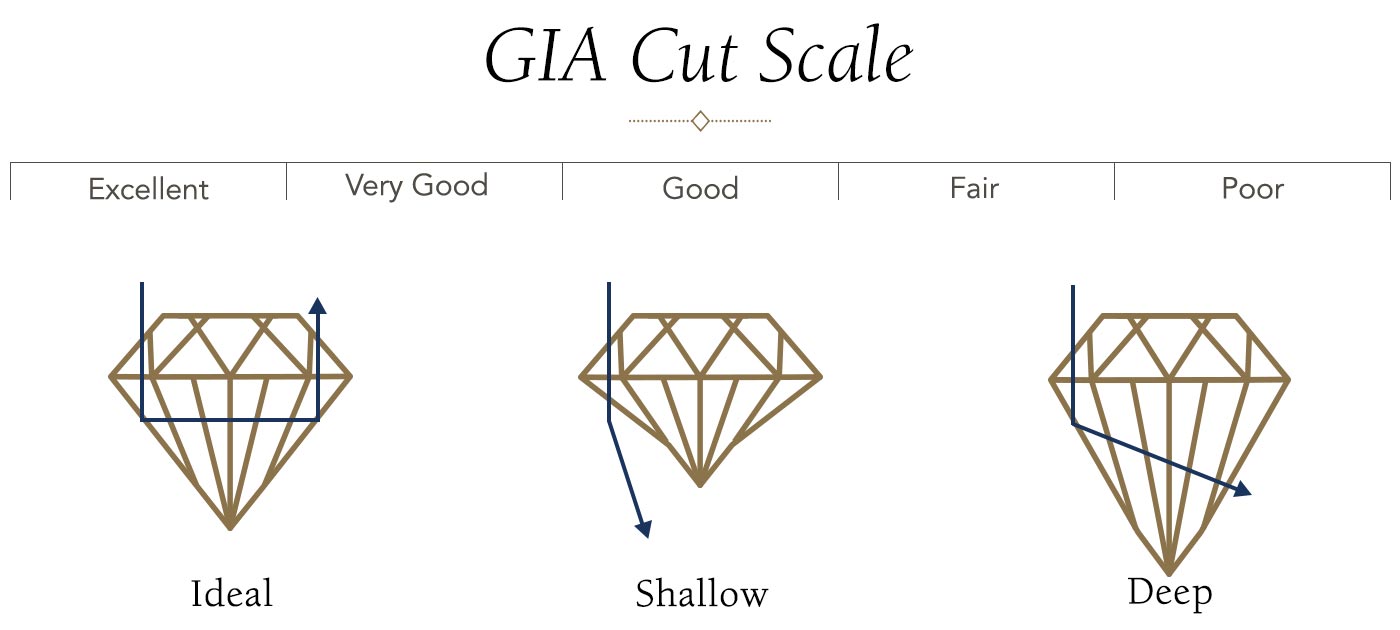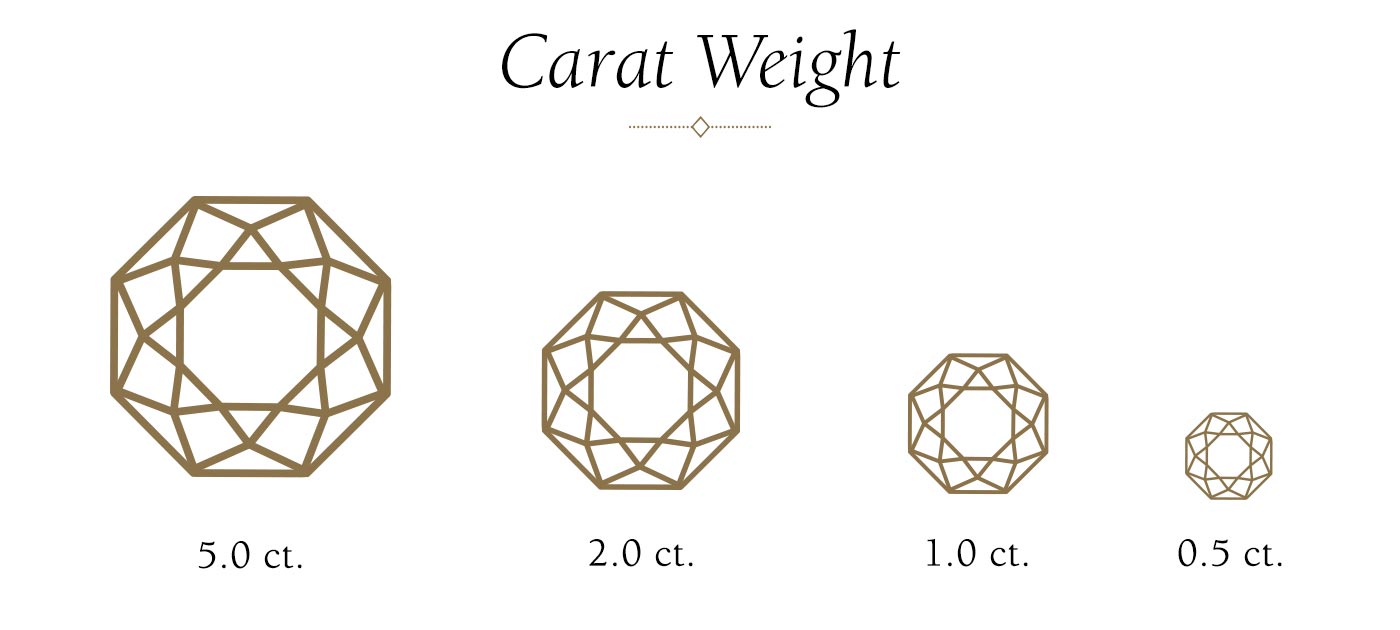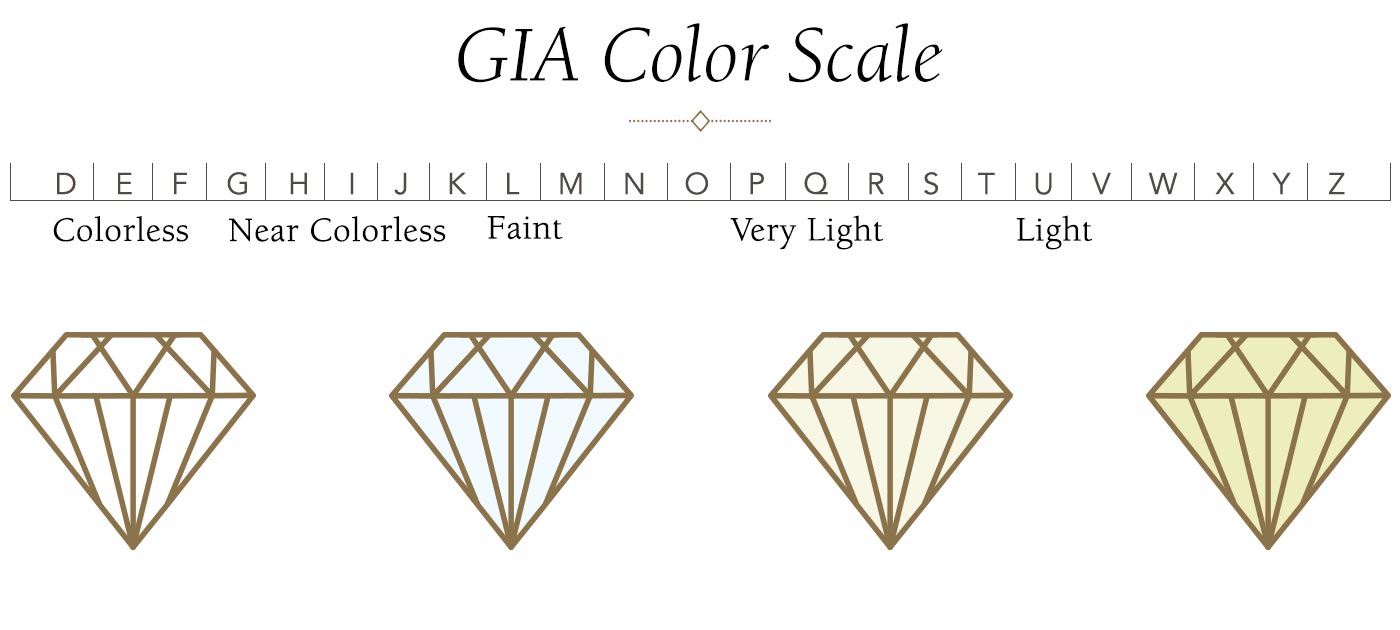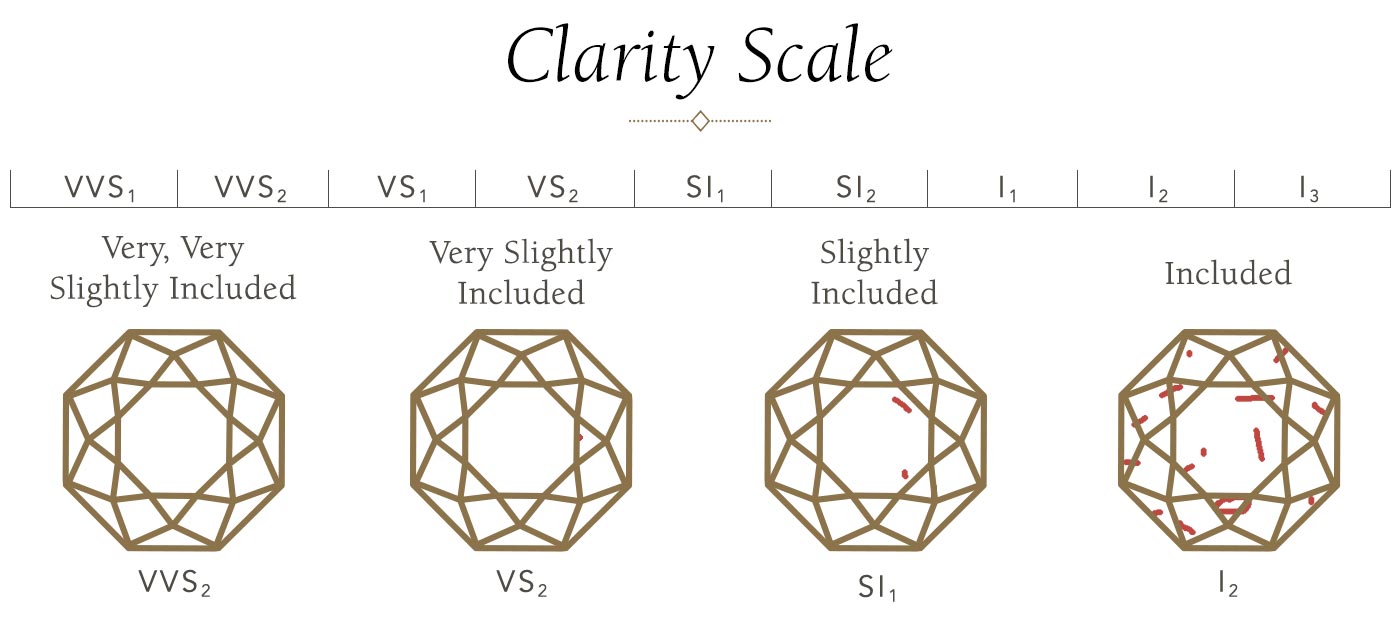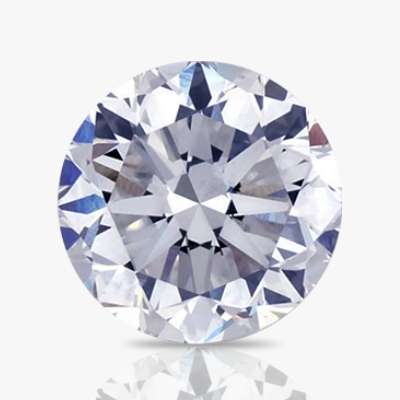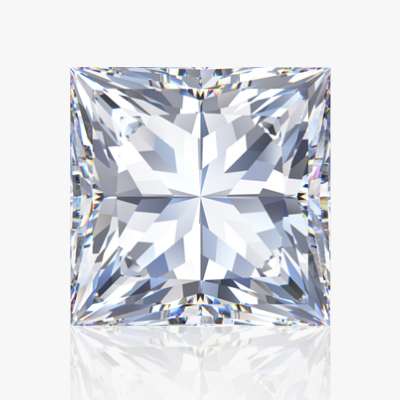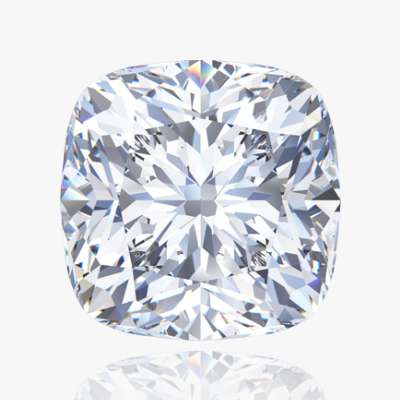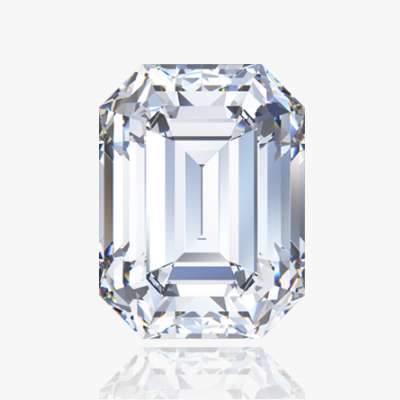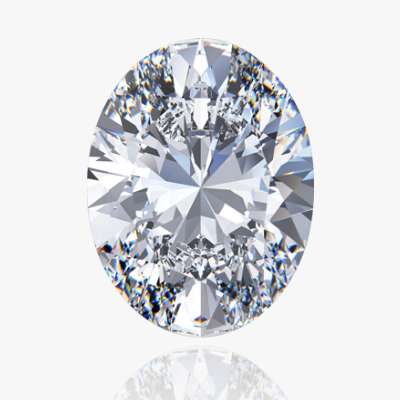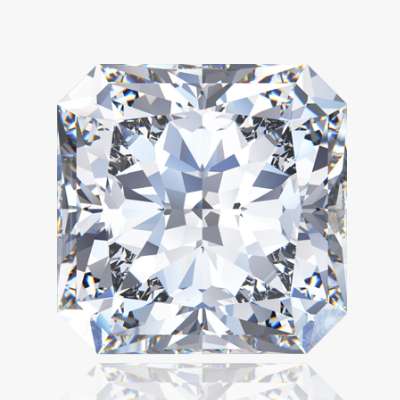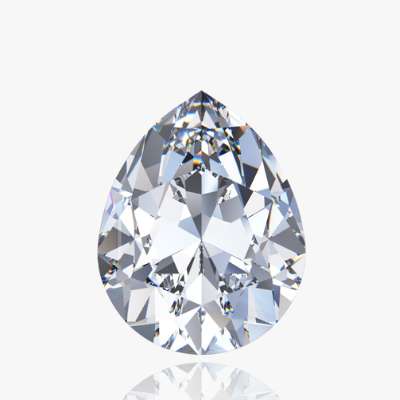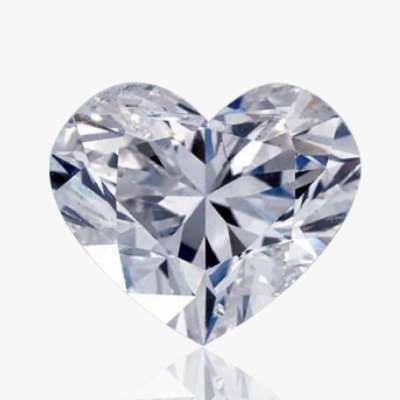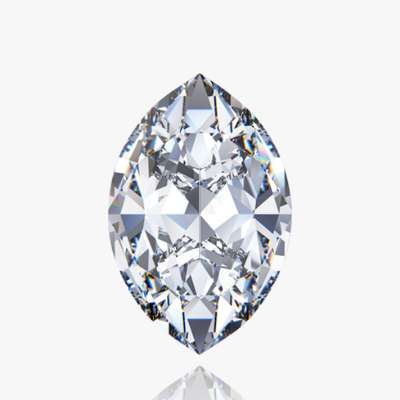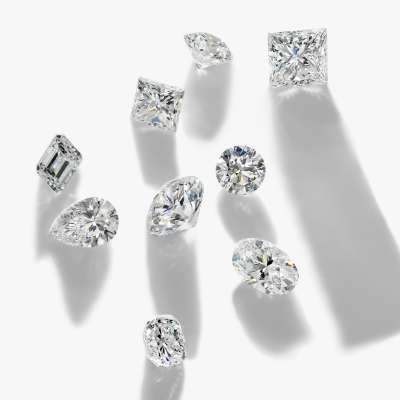While many people have an understanding of different diamond cuts, there is more to ensuring you're buying a quality diamond. Cut, Color, Clarity and Carat weight, known as the 4Cs, are the features that come together to determine the value of a diamond. These features also have a subtle effect on the unique beauty of your diamond. With an understanding of the 4Cs you'll be ready to pick out the diamond perfect for you.
Understanding Quality of Diamonds with the 4Cs
Cut
Of the 4Cs, a diamond's cut has the greatest influence on its fire, sparkle and brilliance, making it, arguably, the most important C. Cut refers not only to the shape of a diamond, but more importantly to its proportions (how the diamond's angles and facets relate to one another), symmetry (the precision of the cut), and polish (the surface of the diamond).
When a diamond is "Ideal-Cut," it means the angles and proportions of the diamond have been cut to produce the ultimate sparkle, fire and brilliance.
Brilliance: The intensity of the white light that is reflected from the diamond's surface and inside
Fire: How light scatters and disperses through the diamond to create a rainbow of light
Scintillation: Flashes of white light, or sparkles, that are visible when the diamond moves
Carat
Diamonds are weighed in units called carats. A carat is measured in increments called points. One carat is equal to 100 points. Carat weight is the easiest of the 4Cs to determine because it is measured on a diamond scale.
Two diamonds of equal weight can have very unequal value depending upon the cut, color and clarity of each.
Often mistaken as size, carat actually measures diamond weight.
Save on the cost by looking at a diamond 10 or 15 points less. For example, if you love a 1.2-carat diamond, see what it looks like next to a 1.1-carat diamond of the same quality.
Color
Fancy color diamonds aside, the best, most beautiful color for a diamond is no color at all. Most Jared diamonds are graded "near colorless" - between G and J on the color scale. At a J grade and beyond, the human eye can start to detect a yellow tint.
The D grade at the top of the scale, is considered colorless, rarest and most expensive.
Moving down the scale toward H or I lets you buy a diamond that still appears white, but is more common and more affordable.
Clarity
Clarity is the degree to which a diamond is free from flaws, which can hinder light as is passes through your diamond. Like people, diamonds have "birthmarks" that vary in size, shape, position, quantity and color. These birthmarks are known as “inclusions” (internal). Diamonds also can have “blemishes,” which occur during the cutting and polishing process.
Inclusions: Internal flaws formed deep in the earth during the diamond's growth.
Blemishes: External flaws that can result from the cutting process.
If you look at a SI2-grade diamond and personally can't see the inclusions and/or blemishes without a magnifying jeweler's loupe, you can probably accept a lower grade and save on cost without compromising beauty.
Start With A Diamond
Select from thousands of loose diamonds and match your stone with a beautiful setting in the precious metal of your choice.
